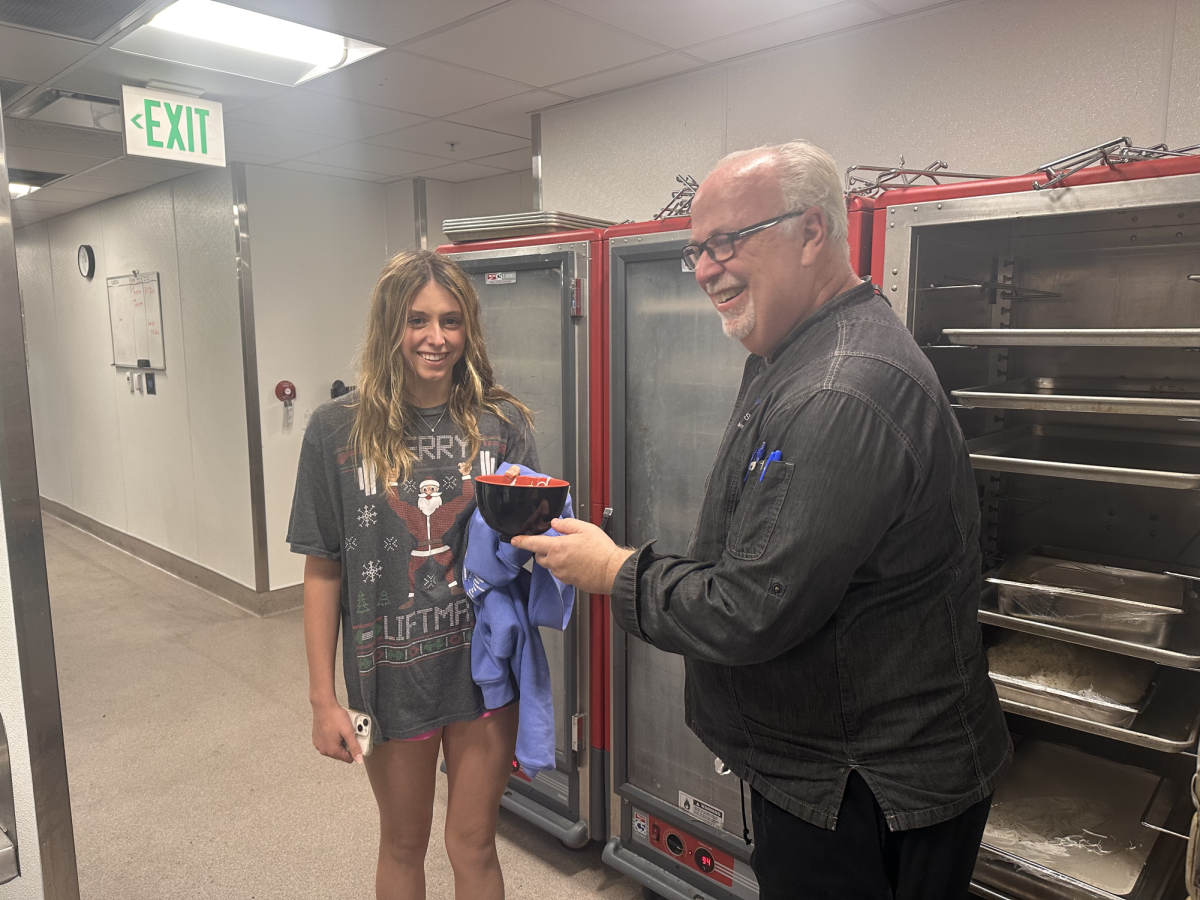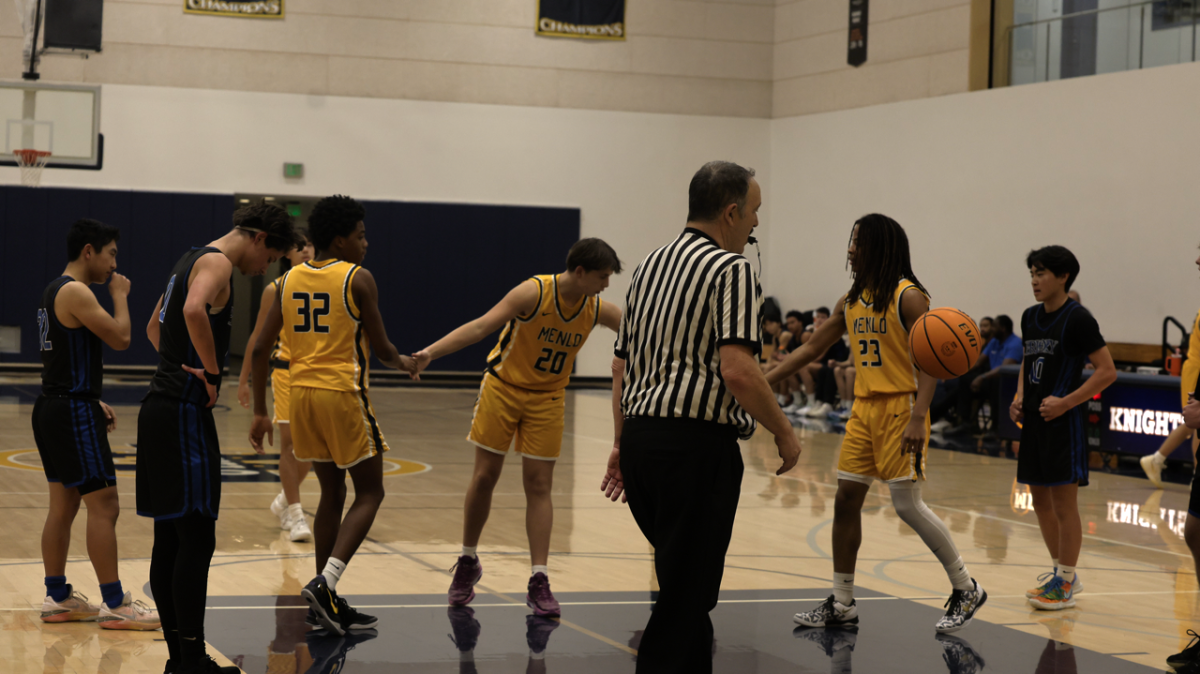From time to time, people are frustrated when they can’t eat particular foods due to certain conditions, such as being celiac and lactose intolerant. For me, these experiences are prevalent throughout many foods. As someone who has lived with life-threatening food allergies for the majority of my life, I have grown accustomed to these limitations. From carefully navigating restaurant menus to double-checking ingredients at home, I take every precaution to ensure my meals are allergen-free and won’t result in a trip to the ER.
So when I first arrived at Menlo, I was a bit apprehensive about the food options available. But that immediately dissolved. Before school even started, my family met with the school’s nurses and culinary team to discuss available protein options and specific meal preparation protocols. These included using color-coded pans and separate cutting boards as a means to take practical steps in order to minimize the cross-contamination of allergens. Before the school year even started, I could already tell that Menlo’s dietary restriction program would be immensely beneficial for people like me with allergies; its thoroughness ensures a healthy and safe environment for its students, fosters an inclusive atmosphere and promotes inclusive diversity options and allergy awareness.
In today’s world, where students value belonging and inclusivity more than ever, navigating social situations with food allergies or other dietary restrictions can be inconvenient, burdensome and unsettling. Indeed, the act of explaining our circumstances can be an ongoing source of embarrassment and discomfort, often accompanied by a fear of judgment or being seen as different. Fortunately, at Menlo, the dietary restriction program has been a game changer. It has seamlessly provided me with my own special meal while also giving me the same array of options as my peers; I can minimize the awkwardness that comes with explaining my food allergies to my friends and can instead focus on enjoying my food.
I often find my friends curiously peering over my shoulder, asking me about my food for the day, and some of them can’t even resist asking for a bite. With a playful grin, I happily share, placing a generous piece of chicken breast alongside a scattering of colorful veggies on their plates. In this supportive atmosphere, I no longer feel like an outcast, relegated to the sidelines while everyone else savors their delectable meals or having to explain my dietary restrictions. The thoughtful consideration of diverse dietary needs at Menlo establishes a compelling standard for what inclusive dining should look like in educational institutions across the globe.
Lastly, dietary accommodations play a significant role in promoting diversity and awareness by catering to the varied cultural, religious, health, and personal preferences of all members of our school community. By providing options that account for individuals’ personal needs, Menlo fosters an inclusive environment where everyone feels seen, heard, and most importantly, valued. Menlo has consistently strived to understand my nutritional needs, while the chefs regularly and graciously welcome my questions and feedback. Additionally, as I witness an increasing number of classmates with various dietary limitations, such as gluten and lactose intolerance, the school continues to demonstrate its unwavering and ongoing commitment to providing viable options for our expanding community.
So, for people who have particular food needs, I encourage you to talk to the cafeteria team. Trust me, there’s something for everyone.









